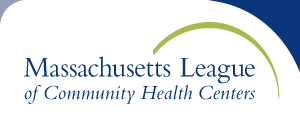History of Health Reform & Outreach
Massachusetts health centers have played a critical role in health care reform - both in 2007 when the state launched a massive effort to enroll eligible residents into insurance plans created under the state's landmark health reform law, Chapter 58, as well as more recently in 2013, when health centers launched their own outreach and enrollment campaigns to transition Massachusetts residents to new coverage options under Affordable Care Act (ACA). In 2016 alone, Massachusetts health centers have provided assistance to over 180,000 individuals seeking coverage and helped some 50,000 residents enroll in a health plan. As of 2015, the Blue Cross Foundation reports that Massachusetts has the lowest uninsured rate in the country at 2.8%, though disparities throughout the state still exist. High-uninsurance communities, many of which are communities health centers serve, have uninsurance rates ranging from 6.6% - 18.8%. Health centers not only provide application assistance to their own patients but also have ongoing, innovative and community-centric outreach programming, at places like farmers markets, career centers, public libraries, schools and colleges, to help community members apply for and enroll in coverage and increase the ability for individuals and families to access care.
Role in 2006 State Health Reform
Massachusetts health centers played a critical role in the implementation of Chapter 58: educating consumers about the new law; promoting the value of health insurance; and enrolling thousands of residents into the state's expanded Medicaid program and newly developed subsidized insurance products.
On the whole, these efforts involved a two-pronged strategy: in-reach to existing patients who qualified for expanded benefits under Medicaid or one of the new subsidized insurance plans; and outreach to community residents who were newly eligible for health coverage and not regular users of health center services.
Health centers in Massachusetts quickly gained recognition as the state's premier experts in outreach and enrollment. As a result, they attracted thousands of patients from private physician offices, whose staffs lacked in-depth knowledge of the new law. This meant that on top of the outreach support they were providing to their patients, they also became destination points for residents in need of enrollment assistance, many of whom continued to use their existing providers.
Even in Massachusetts, where more than 98 percent of state residents have some form of health coverage, health centers continue to apply significant resources to not only helping patients navigate our complex health system, but also in keeping them enrolled in coverage and engaged in primary care.
Moving forward in national reform
The health centers in Massachusetts are currently relying on the strategies they employed in 2006 to help them prepare and move forward today in reaching residents eligible for new coverage under the federal Affordable Care Act.
The communications model established among frontline health center workers, the League, and state policymakers during implementation of the Massachusetts health reform law will go far in ensuring the success of federal reform efforts now taking place.
Equally important, is the widespread acknowledgement that community-based, multilingual outreach and enrollment strategies have been a major factor in helping the state achieve - and preserve - unprecedented rates of health coverage for its residents.
As Massachusetts community health centers work to expand coverage under the Affordable Care Act for their patients, they will continue to underscore the important issues of health access and affordability that endure in their communities despite broad-based reforms.
Today
As millions of Americans begin to sign up for new health coverage under the federal Affordable Care Act (ACA) starting October 1, 2013, Massachusetts health centers is launching their own outreach and enrollment campaigns to ensure a smooth transition for an estimated 295,000 state residents who are eligible for new or updated coverage. These residents include 100,000 individuals who are currently covered under the state's subsidized Commonwealth Care plans and who must re-enroll in updated subsidized plans; 100,000 Commonwealth Care subscribers who will be shifted into the state's Medicaid program as a result of expanded eligibility for that program; and 45,000 Massachusetts residents who newly qualify for state Medicaid coverage.
In 2017-2018, the MassHealth program underwent significant restructuring efforts, including the rollout of Accountable Care Organizations (ACO), which is a new option for MassHealth members. ACOs are a group of doctors and other providers who work together to provide coordinated care for members to help address medical, behavioral and social health care needs. More information and updates can be found on MassHealth Innovations.











